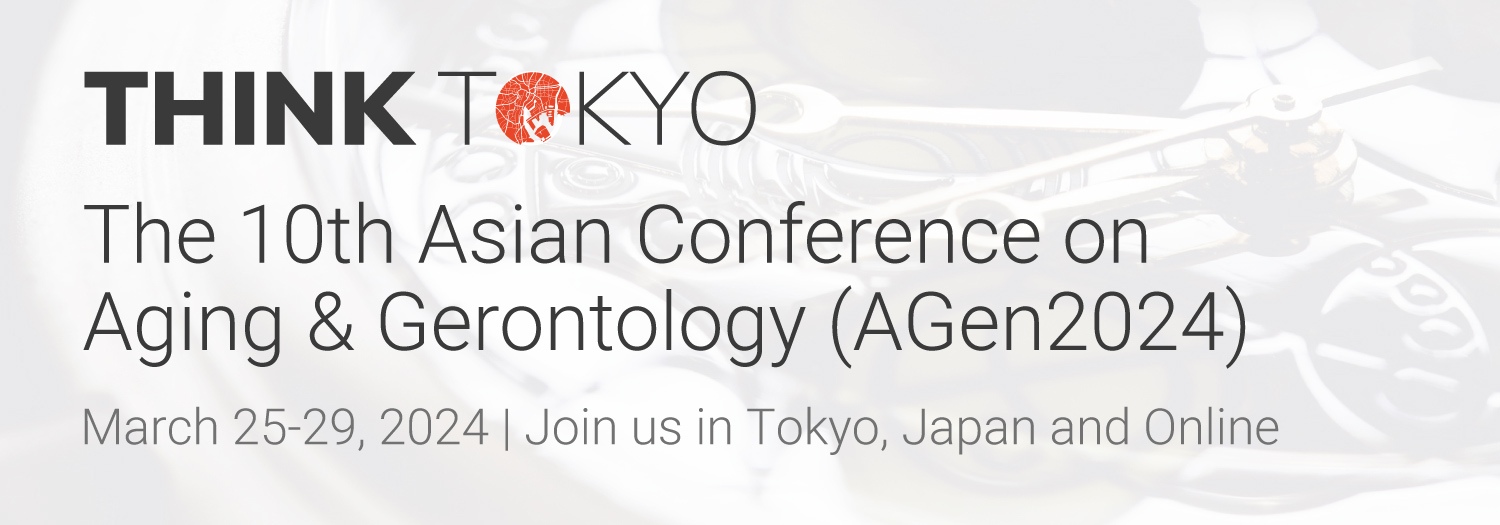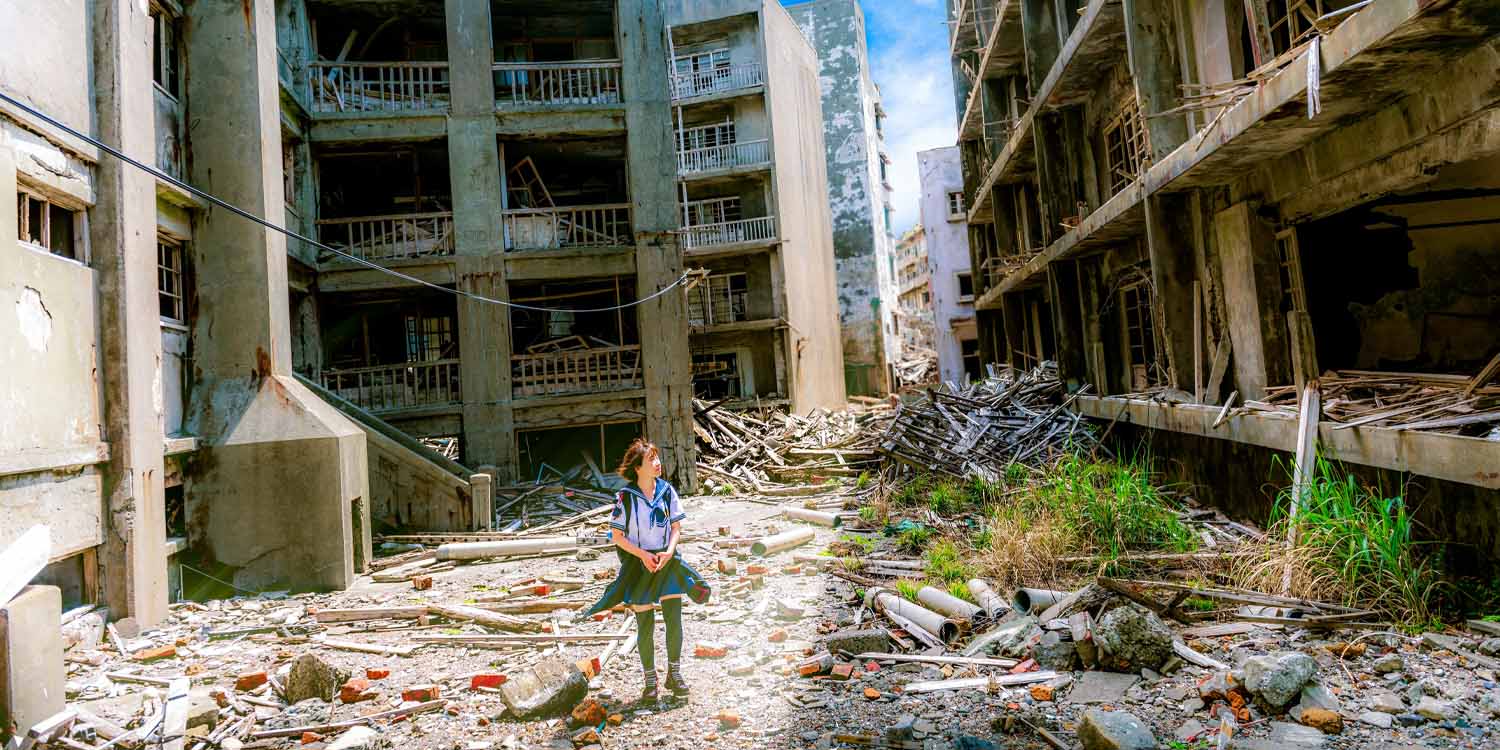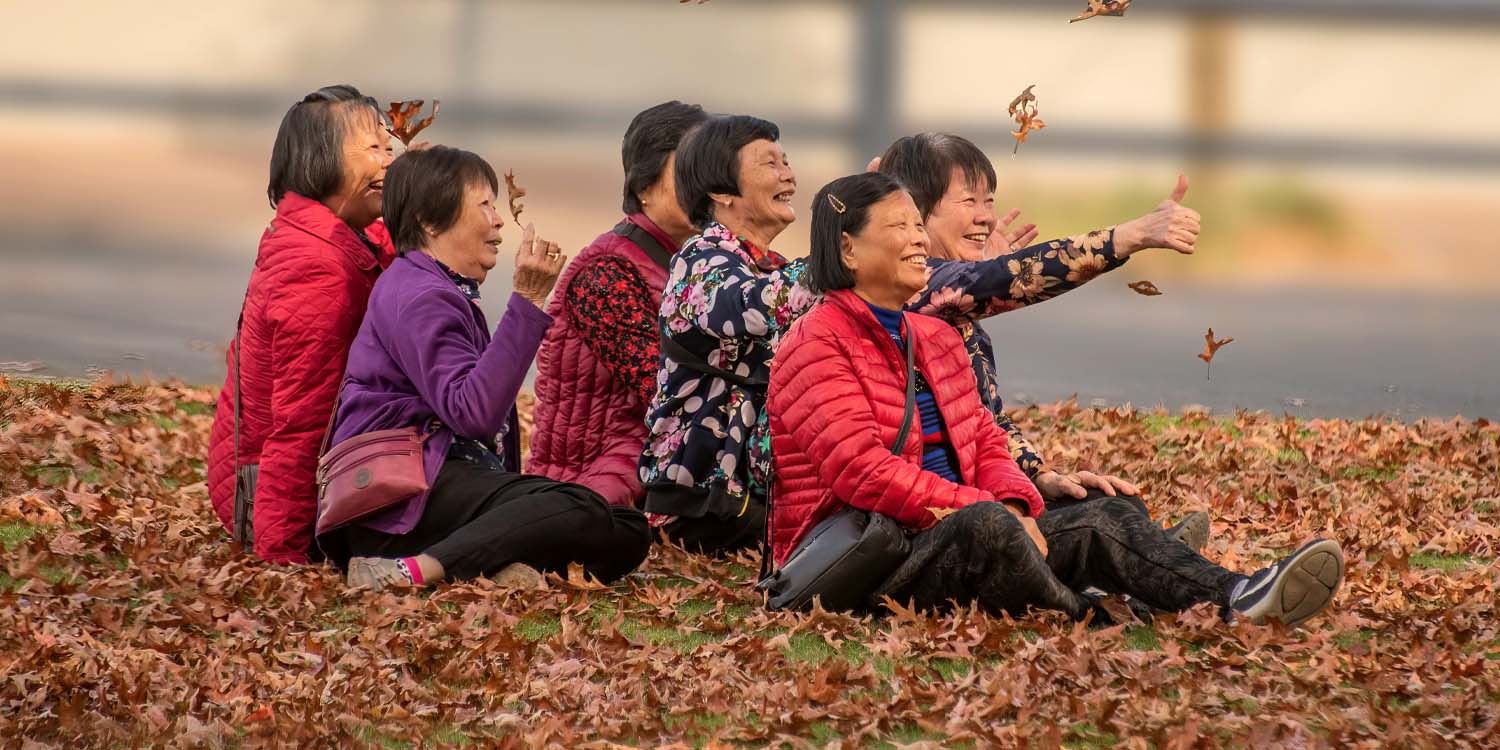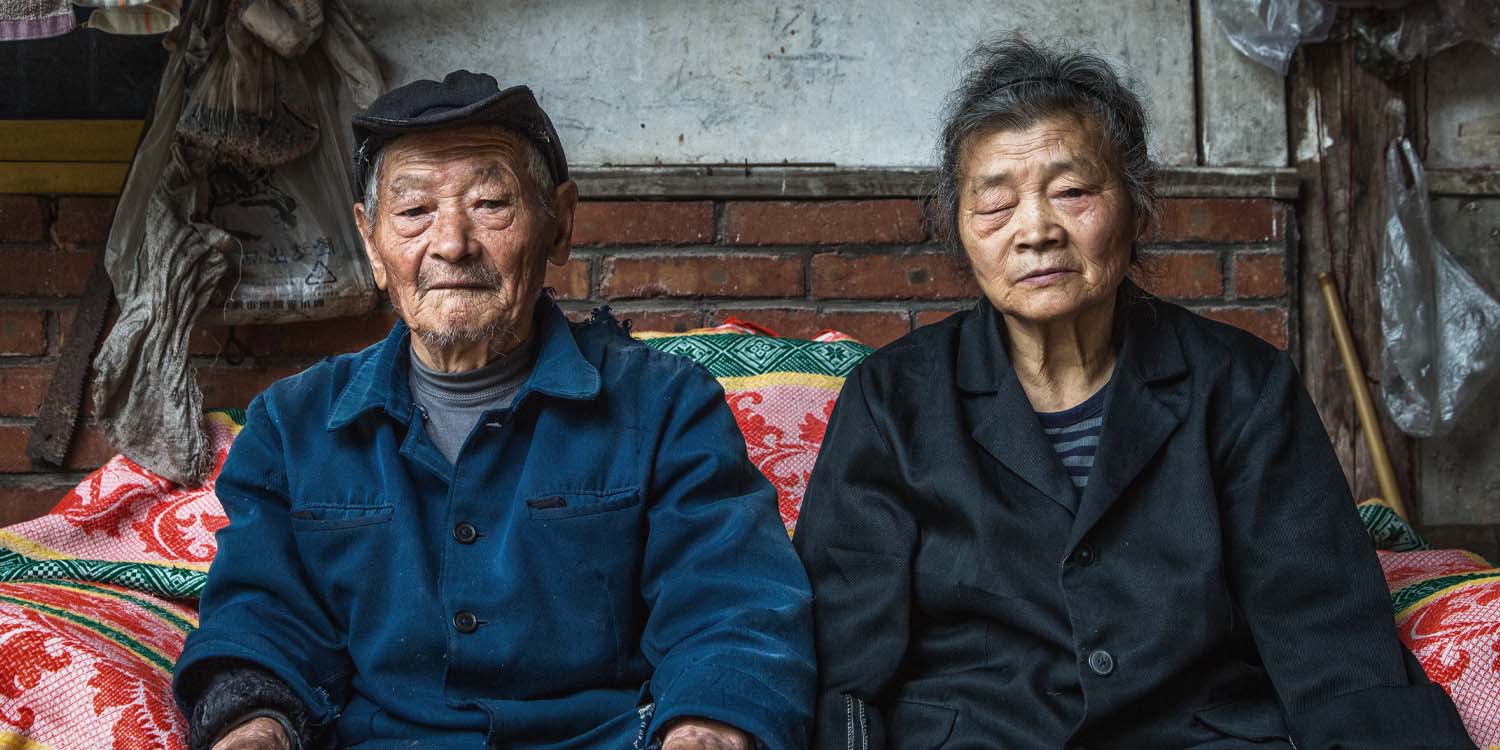Conference Outline
Location: Toshi Center Hotel
10:00-11:00: Conference Check-in & Coffee | Subaru Room (5F)
11:00-11:05: Announcements | Orion Hall (5F)
11:05-11:30: Welcome Address & Recognition of IAFOR Scholarship Winners | Orion Hall (5F)
Joseph Haldane, The International Academic Forum (IAFOR), Japan
11:30-12:15: Keynote Presentation | Orion Hall (5F)
Healing the Scars of War: Teaching for Peace through Higher Education in Divided and Conflict-Affected Contexts
Kevin Kester, Seoul National University, South Korea
12:15-12:30: Conference Photograph | Orion Hall (5F)
12:30-13:45: Lunch Break
13:45-14:30: Keynote Presentation | Orion Hall (5F)
Dealing with the New as We Get Old: AI, Aging, and Ethical Issues
Keith Miller, University of Missouri-St. Louis, United States
14:30-15:00: Extended Coffee Break | Subaru Room (5F)
15:00-16:00: Conference Poster Session 1 | Orion Hall (5F)
16:00-17:00: Welcome Reception | Orion Hall (5F)
19:00-21:00: Conference Dinner | Shunju Tameikesanno
This is a ticketed event
Location: Toshi Center Hotel
09:15-09:45: Conference Check-in & Coffee | Subaru Room (5F)
09:45-10:00: Announcements & Welcome Address | Orion Hall (5F)
10:00-10:45: Keynote Presentation | Orion Hall (5F)
On People and Ageing: Opportunities in an Overlooked and Misunderstood Market Segment
Adela Balderas Cejudo, University of Oxford, United Kingdom
10:45-11:15: Keynote Presentation | Orion Hall (5F)
Japan as a Role Model for Ultra-Aging Societies: Innovation and Sustainability in Universal Access Healthcare
Robert E. Claar, HekaBio, Japan
11:15-11:45: Featured Presentation | Orion Hall (5F)
Getting Old, Staying Young? Studying Older Adults’ Well-Being
Miriam Sang-Ah Park, Nottingham Trent University, United Kingdom
11:45-13:00: Lunch Break
13:00-13:30: Featured Presentation | Orion Hall (5F)
Transforming Mental Healthcare While Harnessing Artificial Intelligence
Bhanu Ranjan, SP Jain School of Global Management, Singapore
13:30-14:00: Keynote Presentation | Orion Hall (5F)
Critical Review on Changing Characteristics of Japan’s Development Assistance and Some Responses of Civil Society
Kiyotaka Takahashi, Keisen University, Japan
14:00-15:00: Moderated Panel Discussion | Orion Hall (5F)
Panel Series: Communication and Education for Peace
Brendan Howe, Ewha Womans University, South Korea
Dexter Da Silva, Keisen University, Japan
Moderated by: Joseph Haldane, IAFOR, Japan
15:00-15:30: Extended Coffee Break
15:30-16:30: Conference Poster Session 2 | Orion Hall (5F)
Conference Venue: Toshi Center Hotel
08:30-09:15: Conference Check-in & Coffee | 6F
09:15-10:55: Onsite Parallel Session 1
Room 603: AGen | Aging and Gerontology
Room 604: AGen | Frailty
Room 605: ACP | Psychology and Education
Room 607: ACP | Mental Health & Professions
Room 608: ACEID | Education & Contemporary Development Issues
Room 609: ACEID | Education & Differences: Counselling, Guidance, and Adjustment in Education
Room 702: ACEID | Teaching Experiences & Languages Education
Room 707: ACEID | Learning Experiences, Student Learning & Learner Diversity
Room 708: ACEID | Teaching Experiences, Pedagogy, Practice & Praxis
10:55-11:10: Coffee Break
11:10-12:50: Onsite Parallel Session 2
Room 603: AGen | Interdisciplinary, Multidisciplinary Research
Room 604: AGen | Public Policy
Room 605: ACP | Psychology and Education
Room 607: ACP | Mental Health and Industrial Organization
Room 608: ACEID | Education & Contemporary Development Issues
Room 609: ACEID | Curriculum Design & Professional Development
Room 702: ACEID | Education, Sustainability & Social Development
Room 707: ACEID | Learning Experiences, Student Learning & Learner Diversity
Room 708: ACEID | International Education
12:50-13:05: Coffee Break
13:05-14:20: Onsite Parallel Session 3
Room 603: AGen | Resources for Gerontological Research, Training & Education (Workshop)
Room 604: ACEID | Best Practices of Instructional Language (Workshop)
Room 605: ACP | Bridging the Gap Between Immigrants and Their Families (Panel)
Room 607: ACP | Psychology, Mental Health, and Social Media
Room 608: ACEID | Empowering Educators (Workshop)
Room 609: ACEID | Voice Care for Educators and Public Speakers (Workshop)
Room 702: ACEID | Teaching Experiences, Pedagogy, Practice & Praxis (Workshop)
Room 707: ACEID | Challenging & Preserving: Culture, Inter/Multiculturalism & Language
Room 708: ACEID | School Funding Strategies (Workshop)
14:20-14:35: Coffee Break
14:35-16:15: Onsite Parallel Session 4
Room 603: AGen | Aging and Gerontology
Room 604: AGen | Lifespan Health Promotion
Room 605: ACP | Psychology and Education
Room 607: ACP | Mental Health
Room 608: ACEID | Interdisciplinary, Multidisciplinary & Transdisciplinary Education
Room 609: ACEID | Language Development & Literacy
Room 702: ACEID | Teaching Experiences, Pedagogy, Practice & Praxis
Room 707: ACEID | Language Education in Multilingual and Multicultural Context
Room 708: ACEID | Curriculum Design & Development
16:30-18:10: Coffee Break
16:30-18:10: Onsite Parallel Session 5
Room 603: AGen | Aging and Gerontology
Room 604: AGen | Built Environment
Room 605: ACP | Mental Health, Psychology & Education
Room 607: ACP | Psychology, Mental & Physical Health
Room 608: ACEID | Interdisciplinary, Multidisciplinary & Transdisciplinary Education
Room 609: ACEID | Innovative Technologies in Education
Room 702: ACEID | Higher Education
Room 707: ACEID | Design, Implementation & Assessment of Innovative Technologies in Education
Room 708: ACEID | Curriculum Design & Development
Conference Venue: Toshi Center Hotel
08:30-09:15 Conference Check-in & Coffee | 6F
09:15-10:55: Onsite Parallel Session 1
Room 603: ACEID | Educational Policy, Leadership, Management & Administration
Room 604: ACP | Psychology, Mental Health & COVID-19
Room 605: ACP | General Psychology
Room 607: ACP | Mental Health & Behavioural Science
Room 608: AGen | Aging and Gerontology
Room 609: ACP | Psychology, Mental Health & Technology
Room 702: ACEID | Teaching Experiences, Pedagogy, Practice & Praxis
Room 704: ACEID | Innovation & Technology
Room 707: ACEID | Learning Experiences, Student Learning & Learner Diversity
Room 708: ACEID | Professional Development in Higher Education
10:55-11:10: Coffee Break
11:10-12:50: Onsite Parallel Session 2
Room 603: ACEID | Educational Policy, Leadership, Management & Administration
Room 604: ACP | Psychology & Behavioural Science
Room 605: ACP | Mental Health & Community Development
Room 607: ACP | Psychology and Education
Room 608: AGen | Loneliness
Room 609: ACP | Psychology, Mental Health & Physical Well-Being
Room 702: ACEID | Teaching Experiences, Pedagogy, Practice & Praxis
Room 704: ACEID | Innovation & Technology
Room 707: ACEID | Learning Experiences, Student Learning & Learner Diversity
Room 708: ACEID | Higher Education
12:50-13:05: Coffee Break
13:05-14:45: Onsite Parallel Session 3
Room 603: ACEID | Education Policy & Education Development
Room 604: ACP | Psychology & Behavioural Science
Room 605: ACP | Mental Health & Therapy
Room 607: ACP | Psychology and Education
Room 608: AGen | Aging and Gerontology
Room 609: ACP | Psychology & Self-Consciousness
Room 702: ACEID | Teaching Experiences, Pedagogy, Practice & Praxis
Room 704: ACEID | Innovative Technologies in Education
Room 707: ACEID | Learning Experiences, Student Learning & Learner Diversity
Room 708: ACEID | Lifelong Learning & Resiliency in Education
14:45-15:00: Coffee Break
15:00-16:40: Onsite Parallel Session 4
Room 603: ACEID | Educational Policy, Leadership, Management & Administration
Room 604: ACP | Interdisciplinary Research, Psychology & Mental Health
Room 605: ACEID | Foreign Languages Education & Applied Linguistics
Room 607: ACP | Psychology and Education
Room 608: AGen | Aging and Gerontology
Room 609: AGen | Aging and Gerontology
Room 702: ACEID | Primary & Secondary Education
Room 704: ACEID | Teaching Experiences, Innovation & Technology
Room 707: ACEID | Education & Society
Room 708: ACEID | Professional Development & Concerns in Education
Conference Venue: Online via Zoom
07:55-08:00: Message from IAFOR
08:00-08:45: Keynote Presentation
Filial Piety and its Discontents Variation in Evaluating Adult Children as “Filial” by Older Parents in Rural China
Merril Silverstein, Syracuse University, United States
08:45-09:00: Break
09:00-10:40: Online Parallel Session 1
Room A (Live-Stream): ACEID | Learning Experiences, Student Learning & Learner Diversity
Room B (Live-Stream): ACEID | Design, Implementation & Assessment of Innovative Technologies in Education
Room C (Live-Stream): ACEID | Professional Training, Development & Concerns in Education
Room D (Live-Stream): AGen | Aging and Gerontology
Room E (Live-Stream): ACP | Industrial Organization and Organization Theory
10:40-10:50: Break
10:50-12:30: Online Parallel Session 2
Room A (Live-Stream): ACEID | Learning Experiences, Student Learning & Learner Diversity
Room B (Live-Stream): ACEID | Foreign Languages Education & Applied Linguistics
Room C (Live-Stream): ACEID | Teaching Experiences, Pedagogy, Practice & Praxis
Room D (Live-Stream): AGen | Aging and Gerontology
Room E (Live-Stream): ACP | Psychology, Mental Health & Behavioral Science
12:30-12:40: Break
12:40-14:20: Online Parallel Session 3
Room A (Live-Stream): ACEID | Primary & Secondary Education
Room B (Live-Stream): ACEID | International Education
Room C (Live-Stream): ACEID | Higher Education
Room D (Live-Stream): ACP | Aging and Gerontology
Room E (Live-Stream): ACP | Psychology and Education
14:20-14:30: Break
14:30-16:10 Online Parallel Session 4
Room A (Live-Stream): ACEID | Learning Experiences, Student Learning & Learner Diversity
Room B (Live-Stream): ACEID | Education & Difference: Special Education
Room C (Live-Stream): ACEID | Higher Education
Room D (Live-Stream): ACP | Qualitative/Quantitative Research in any other area of Psychology
Room E (Live-Stream): ACP | Psychology and Education
16:25-16:30: Message from IAFOR
*Please be aware that the above schedule may be subject to change.
Conference Programme & Abstract Book
The online version of the Conference Programme & Abstract Book is now available for download. It contains access information, session information and a detailed day-to-day presentation schedule.
The Conference Programme can also be viewed on the Issuu website (requires a web browser). An Issuu app is available for Android users.
*Please be aware that the above schedule may be subject to change.
Featured Presentations
-
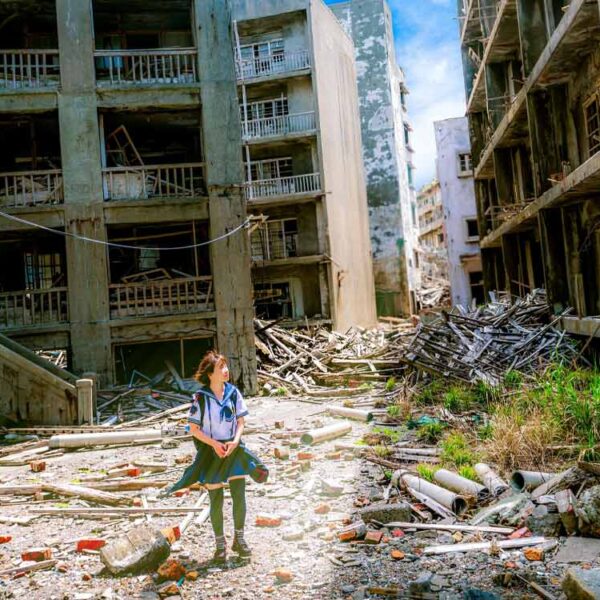 Healing the Scars of War: Teaching for Peace through Higher Education in Divided and Conflict-Affected ContextsKeynote Presentation: Kevin Kester
Healing the Scars of War: Teaching for Peace through Higher Education in Divided and Conflict-Affected ContextsKeynote Presentation: Kevin Kester -
 Dealing with the New as We Get Old: AI, Aging, and Ethical IssuesKeynote Presentation: Keith W. Miller
Dealing with the New as We Get Old: AI, Aging, and Ethical IssuesKeynote Presentation: Keith W. Miller -
 On People and Ageing: Opportunities in an Overlooked and Misunderstood Market SegmentKeynote Presentation: Adela Balderas Cejudo
On People and Ageing: Opportunities in an Overlooked and Misunderstood Market SegmentKeynote Presentation: Adela Balderas Cejudo -
 Japan as a Role Model for Ultra-Aging Societies: Innovation and Sustainability in Universal Access HealthcareKeynote Presentation: Robert E. Claar
Japan as a Role Model for Ultra-Aging Societies: Innovation and Sustainability in Universal Access HealthcareKeynote Presentation: Robert E. Claar -
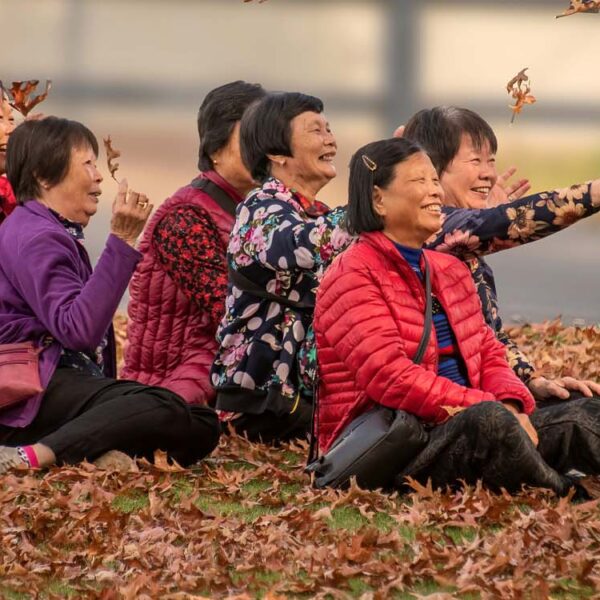 Getting Old, Staying Young? Studying Older Adults’ Well-beingFeatured Presentation: Miriam Sang-Ah Park
Getting Old, Staying Young? Studying Older Adults’ Well-beingFeatured Presentation: Miriam Sang-Ah Park -
 Transforming Mental Healthcare While Harnessing Artificial IntelligenceFeatured Presentation: Bhanu Ranjan
Transforming Mental Healthcare While Harnessing Artificial IntelligenceFeatured Presentation: Bhanu Ranjan -
 Critical Review on Changing Characteristics of Japan’s Development Assistance and Some Responses of Civil SocietyFeatured Presentation: Kiyotaka Takahashi
Critical Review on Changing Characteristics of Japan’s Development Assistance and Some Responses of Civil SocietyFeatured Presentation: Kiyotaka Takahashi -
 Panel Series: Communication and Education for PeacePanel Presentation: Brendan Howe, Dexter Da Silva
Panel Series: Communication and Education for PeacePanel Presentation: Brendan Howe, Dexter Da Silva -
 Filial Piety and its Discontents Variation in Evaluating Adult Children as “Filial” by Older Parents in Rural ChinaKeynote Presentation: Merril Silverstein
Filial Piety and its Discontents Variation in Evaluating Adult Children as “Filial” by Older Parents in Rural ChinaKeynote Presentation: Merril Silverstein
Virtual Presentations
Important Information Emails
All registered attendees will receive an Important Information email and updates in the run-up to the conference. Please check your email inbox for something from "iafor.org". If you can not find these emails in your normal inbox, it is worth checking in your spam or junk mail folders as many programs filter out emails this way. If these did end up in one of these folders, please add the address to your acceptable senders' folder by whatever method your email program can do this.
Previous Programming
View details of programming for past AGen conferences via the links below.
